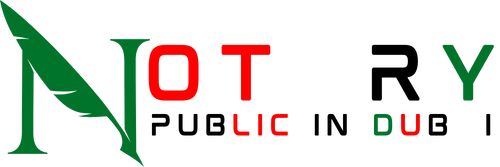In Dubai, where international business, legal matters, and global travel are everyday affairs, the demand for verified documentation is high. One of the most commonly required services in legal, academic, immigration, and corporate processes is the certified true copy. Whether you’re applying for a visa, dealing with property transactions, setting up a company abroad, or pursuing education overseas, a certified true copy of your documents may be essential.
Understanding what a certified true copy is, why it’s needed, how it’s obtained, and the laws surrounding it in Dubai can help you avoid unnecessary delays and complications. This guide covers everything you need to know about certified true copy services in Dubai.
What is a Certified True Copy?
A certified true copy is a photocopy of an original document that has been verified and certified as a true and accurate representation of the original. The certification is typically performed by a recognized authority, such as a notary public, lawyer, or government official.
The certified copy includes a signed statement by the certifying officer confirming that the document is a true and complete copy of the original, along with their official stamp, date, and sometimes a serial number or reference ID for verification purposes.
This process is important when the original document must be preserved, cannot be submitted, or when institutions abroad require proof of authenticity from a trusted source.
When is a Certified True Copy Required?
Certified true copies are frequently requested in various sectors for both personal and professional purposes. Here are some common situations where you may need one:
Immigration and Visa Applications
Most embassies and consulates require certified copies of documents such as passports, educational certificates, marriage certificates, or financial statements for immigration and visa purposes.
Overseas Education
Foreign universities often require certified copies of academic transcripts, degree certificates, and identification documents during the admission process.
Banking and Financial Transactions
Banks, especially international ones, may request certified true copies of identity documents and proof of address to open accounts or process KYC (Know Your Customer) documentation.
Company Formation Abroad
Entrepreneurs forming companies in jurisdictions like the UK, Canada, or offshore zones must submit certified copies of personal IDs, passports, and legal agreements.
Legal Proceedings
Certified true copies are used in court procedures, civil matters, power of attorney cases, inheritance claims, and more.
Property Transactions
When buying or selling property in another country, documents such as passports, proof of ownership, and legal identification often need to be submitted in certified form.
Who Can Issue a Certified True Copy in Dubai?
In Dubai, the authority to certify a true copy depends on the nature of the document and the requirements of the receiving institution. The following entities are commonly authorized to issue certified true copies:
- Notary Public in Dubai (through Dubai Courts or private notaries)
- Lawyers licensed to operate in the UAE
- Dubai International Financial Centre (DIFC) Courts’ Notary Services
- Government and consular officers (in specific scenarios)
Among these, the Notary Public in Dubai is the most widely accepted certifying authority for official and international use, especially for documents related to legal, immigration, and academic matters.

How to Get a Certified True Copy in Dubai
The process of obtaining a certified true copy is relatively straightforward but must be done correctly to ensure legal validity and international acceptance. Here’s a step-by-step guide:
Prepare the Original Document
Ensure that the original document is complete, legible, and in good condition. Damaged or illegible documents may be rejected.
Photocopy the Document
Make a clear, high-quality photocopy of the original. Some certifying authorities may prefer to make the copy themselves to ensure integrity.
Visit a Certified Authority
Take the original and the copy to a licensed notary public, legal consultant, or authorized lawyer for certification. In Dubai, public and private notaries offer this service routinely.
Certification Process
The notary or authorized officer will examine the original, verify its authenticity, and sign/stamp the copy to declare it a true copy. The certified document will usually contain:
- Signature of the certifying officer
- Official stamp/seal
- Date of certification
- Contact information for verification
- Certification wording (e.g., “This is a true copy of the original document seen and verified by me”)
Step 5: Collect Your Certified Copy
Once certified, you can collect the document immediately or on the same day. Some notary offices also offer digital certification or e-attestation services.
Certified True Copy vs. Notarization
Though often used interchangeably, a certified true copy is not the same as notarization. Here’s the difference:
- Certified True Copy: Verifies that a copy of a document is a true representation of the original. No legal content is certified—just the document’s authenticity.
- Notarization: Involves legal validation of signatures, declarations, or transactions. It often confirms that the signer understands and willingly signs a document, such as a power of attorney or affidavit.
However, in Dubai, both services are often handled by the notary public, and both are important depending on the legal requirement.

Things to Keep in Mind
When seeking certified true copies in Dubai, consider the following:
- Document Language: If your documents are in a foreign language, certified translation may be required before certification.
- Destination Country Rules: Some countries require documents to be legalized or apostilled in addition to being certified.
- Original Documents: Always bring the original with you. Certified copies cannot be issued without verification of the original.
- Multiple Copies: If you need certified copies for more than one institution, it’s advisable to get several certified at once to avoid repeated visits.
Digital Certified Copies in Dubai
As Dubai continues to embrace digital governance, some notary services are offering e-certified true copies, which are verified electronically and shared via secure platforms. These are particularly useful for international applications and remote transactions.
While not yet accepted in all jurisdictions, digital certification is gaining traction and may soon become a global norm.
Choosing the Right Certified True Copy Provider
With many legal offices and notary services available in Dubai, choosing a reliable and experienced provider is crucial. The right provider will:
- Understand international requirements
- Handle sensitive documents with confidentiality
- Offer timely and professional service
- Provide multilingual support if needed
- Ensure compliance with UAE legal standards
A trusted and highly reputed platform offering professional certified true copy services in Dubai is https://notarypublicindubai.com/, known for accuracy, reliability, and exceptional customer service across various document types and legal needs.
Cost of Certified True Copy in Dubai
Fees for certified true copies vary depending on:
- The type and number of documents
- The certifying authority (public notary vs. private firm)
- Urgency or same-day requirements
On average, the cost may range from AED 50 to AED 200 per page. Bulk discounts may apply for multiple documents.
Final Thoughts
Certified true copy services in Dubai are essential for anyone navigating legal, academic, financial, or immigration processes at the international level. Ensuring your documents are certified properly can prevent legal issues, delays, and even rejections from foreign institutions.
Whether you’re applying for a student visa, starting a company abroad, buying international property, or simply complying with due diligence processes, getting your documents certified by a trusted notary in Dubai is a smart and necessary step.
Always work with experienced professionals who understand both local procedures and international requirements to ensure your certified documents are accepted wherever you go.
